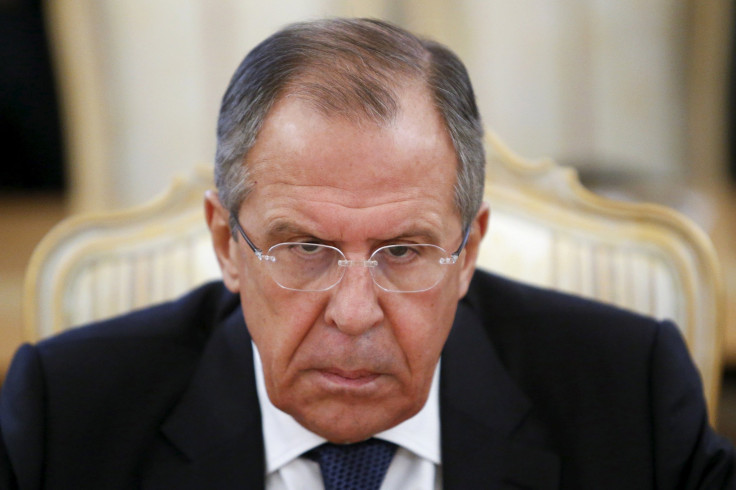Islamic State Oil And Weapons Crossing Syria-Turkey Border Despite US And Russian Attacks

The flow of illegal oil and weapons across the Syrian-Turkish border is continuing despite targeted attacks on Islamic State group infrastructure and U.N. Security Council sanctions demanding an end to the practice, Russian Foreign Minister Sergey Lavrov told his German counterpart Frank-Walter Steinmeier in Moscow Wednesday. The terror group has raised billions in revenues by selling oil on the black market, which has enabled it to fund major operations in Iraq and Syria over the last 21 months.
While aggressive U.S. and Russian-led operations have slowed ISIS’ oil business, there are still concerns in Moscow. "After our aerospace forces initiated the operation to terminate the illegal traffic, particularly, of oil and oil products from Syria, from the areas controlled by ISIS to Turkey, this traffic has decreased substantially," said Lavrov, according to a report by Tass, a Russian government news agency. "Nevertheless, it is still there. The sector of the border between two Kurdish enclaves in northern Syria is actively used.”
Russian authorities say weapons are being smuggled across Turkey’s southern border with Syria to terror groups and other entities allied with the U.S.-led coalition. This violates standing U.N. resolutions, but the 511-mile long border has been difficult for Ankara to fully patrol.
"We insist on compliance with U.N. Security Council resolutions demanding to stop trade with ISIS and other terrorists just as resolutions demanding an end to the flow of foreign terrorists, gunmen via Turkish territory to Syria," Lavrov said, referring to Turkey's alleged failure to protect and patrol its borders effectively.
Russia recently began withdrawing its core military elements from Syria, believed to be a ploy to placate the West and ensure that President Bashar Assad’s authoritarian regime is forced to negotiate with rival groups. Russian officials came to believe that Assad was reluctant to negotiate because he had the protections of the Kremlin’s military power.
Russia, while long backing Assad, became directly involved in the Syrian war in September 2015, supplying Assad’s military with advisers and heavy weapons. As of February, Russian military jets had conducted more than 400 combat sorties and hit 1,593 terror targets, according to a Ministry of Defense statement.
© Copyright IBTimes 2024. All rights reserved.






















